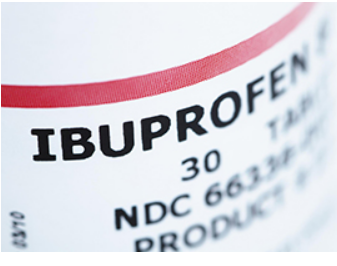
What are You Using for Pain Relief?
Over the counter (OTC) and prescription nonsteroidal anti-inflammatory drugs (NSAIDs) are being heavily researched for their links to increased risk of heart attack and severe gastrointestinal complications. The feedback so far is not favorable for NSAID use and according to Clinical Medicine and Research, NSAIDs have been a significant contributor to cardiovascular events and caution needs to be taken by clinicians and doctors prescribing NSAIDs to their patients. If the Federal Drug Administration is beefing up the warning labels, we as consumers really need to pay attention to what we are popping for pain relief. It is also indicated those who suffer with hypertension or existing heart conditions are at greater risk and should consider other alternatives like acetaminophen, the familiar ingredient in Tylenol for pain relief. A nation-wide cohort study was conducted on patients with prior heart attack and suggested even short term use of NSAIDs placed the patient at increased risk of heart attack or death.

Common Names for NSAIDs
Nonsteroidal anti-inflammatory drugs (NSAIDs) bought over the counter (OTC) have been popular for years and excellent pain relief for sore muscles, tendonitis, sprains and strains, headaches and menstrual cramps. You could call NSAIDs an athlete’s best friend when it comes to pain relief but it appears the health risks are now outweighing the benefits. “Common OTC NSAIDs include ibuprofen (Motrin, Advil) and naproxen (Aleve).” Some OTC cold medications also include NSAIDs according to the Federal Drug Administration (FDA). Another alarming statement by Judy Racoosin, M.D. of the FDA claims “there is no period of use shown to be without risk.”

Read the Warning
The positive about a strengthened warning for heart attack or stroke is consumer awareness and given the information deciding if nonsteroidal anti-inflammatory drugs (NSAIDs) like Ibuprofen are right for you. Also advised was not to take two NSAIDs at the same time otherwise increasing the risks and always beginning with the lowest dose possible on the medication. The FDA is not saying to stop taking drugs like Ibuprofen, but they do want you to be aware of the recent findings to increased risk of heart attack and stroke. The safest bet is to have a talk with your doctor about taking NSAIDs like Ibuprofen and at the very least consider other options for pain relief. Click this link to read the FDA Drug Safety Announcement Strengthening Warning for NSAIDs released July 2015.
Read the full post in about health










